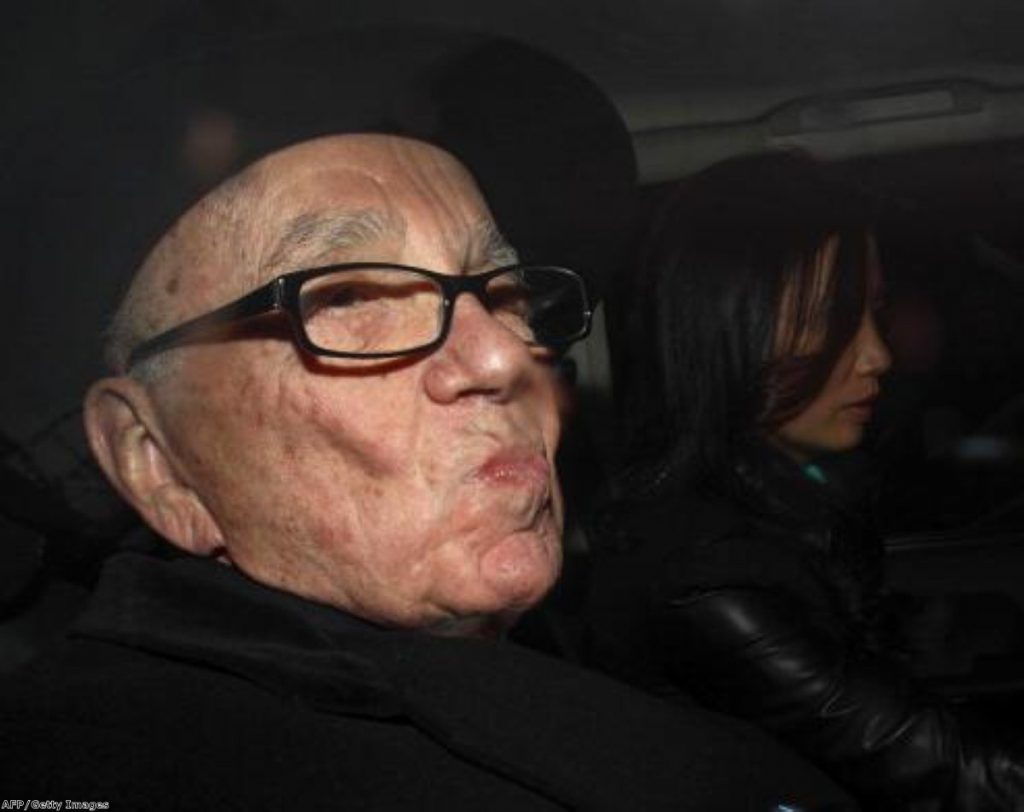‘I was under siege’: Cable comes clean about ‘war on Murdoch’
Vince Cable has described the series of events which led him to say he was at "war" with Rupert Murdoch.
The comment, which was reported by two undercover Telegraph journalists in December 2010, saw David Cameron remove the BSkyB brief from the business secretary and hand it to Jeremy Hunt, who is now facing calls for his resignation amid evidence he was biased towards News Corporation.
Appearing at the Leveson inquiry today Mr Cable said he was warned the Murdoch press would savage the Liberal Democrats if he blocked the bid.
"Colleagues expressed some alarm about whether this whole affair was going to lead to retribution," he said.


One Liberal Democrat colleague confidentially told him he had a conversation with Fred Michel, News Corp's lobbyists for the bid, in which he explicitly said the Murdoch media would attack the party if there was an unsuccessful outcome. However, Mr Cable said he would not reveal the colleagues' name.
There was a "sense of being under siege from a well organised operation," Mr Cable said.
On the day of the Telegraph sting operation, a protest had taken place outside his constituency surgery, the business secretary explained.
"In order to explain the rather emotional way I dealt with this – there was a near riot taking place outside my constituency office," he said.
"People were trying to force their way in. In order to prevent the disorder getting out of control I invited in some of the protesters in.
"When I'd finally seen them out I was in an extremely tense frame of mind."
The two undercover reporters were the first people he saw after the protesters.
"I frankly stored up my anger at what had taken place," he said.
"I'm usually very calm in difficult situations but I offloaded on to them."
Nevertheless, Mr Cable insisted he would have dealt with the BSkyB bid professionally and impartially.
"It was my intention to have the matter properly reviewed because it satisfied the test for intervention," he said.
"I acted entirely properly. By acting appropriately and impartially I had put it in the hands of the regulator. Ofcom concluded there were issues of substance."
The rest of Mr Cable's evidence saw him explain why he repeatedly rejected invitations to meet the news Corp representatives – including evening parties.
The business secretary explained that he could not discuss the bid with News Corp. Asked by a News Corp lawyer why he did not just listen to their case, he said he would then have had to do the same for all the various groups making representations. Instead, he asked for a representation on paper.
The conduct contrasts sharply with informal, friendly manner the bid was conducted by Jeremy Hunt, who gives evidence to the Leveson inquiry tomorrow.
However, the media secretary's hand will have been strengthened slightly by the inconsistencies and inaccuracies Mr Cable highlighted in the emails from Mr Michel to his superiors.









